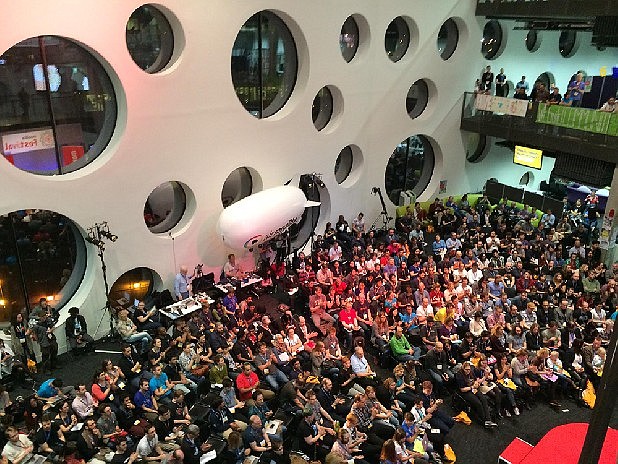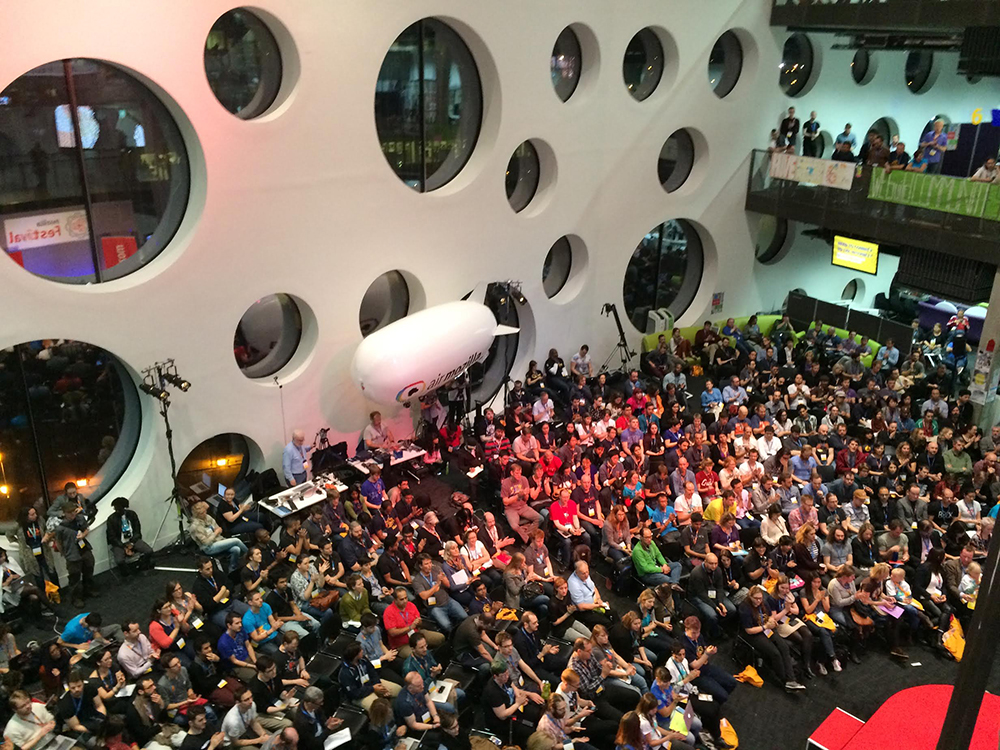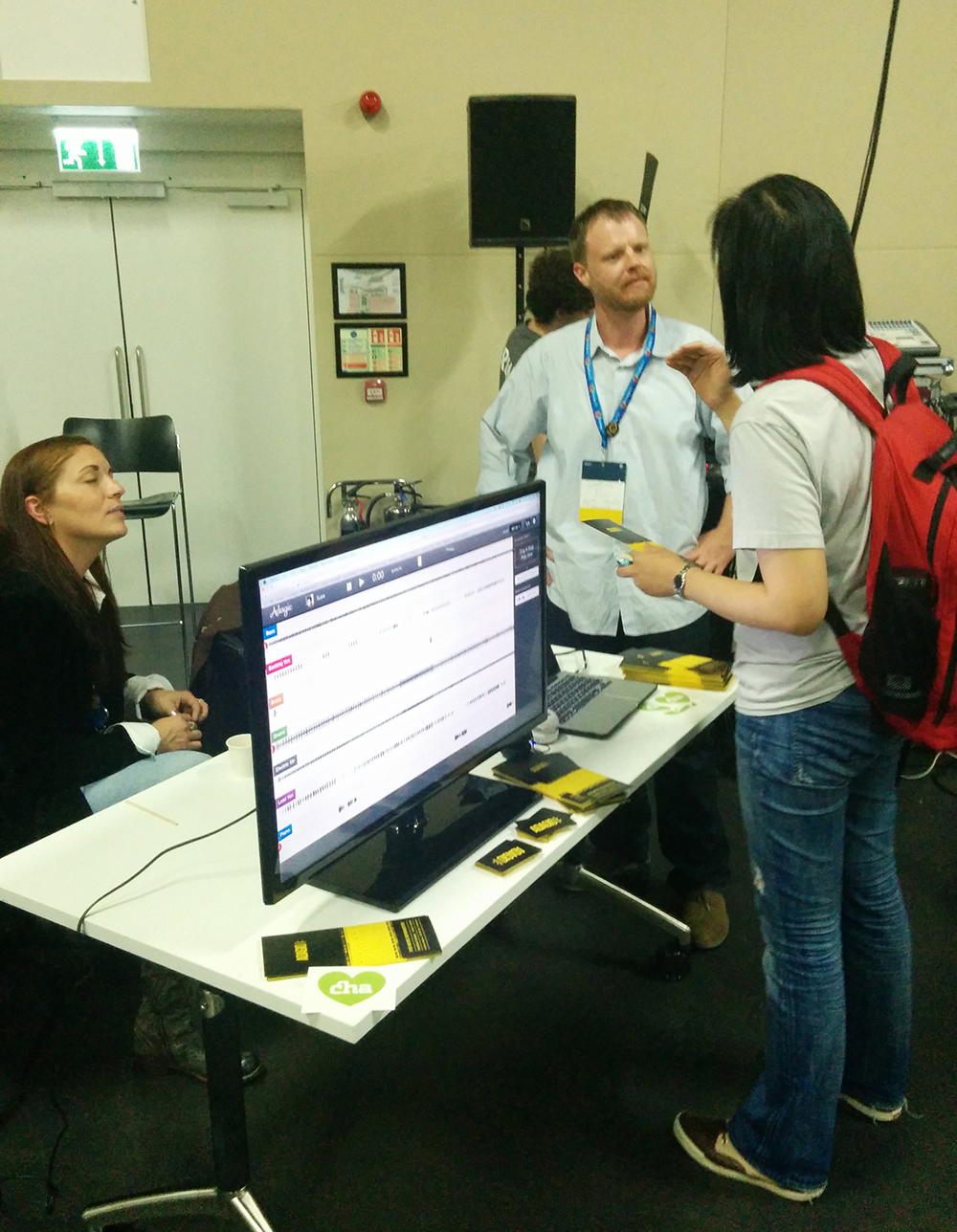About Hive ChattanoogaHive Chattanooga oversees eight pilot projects that take advantage of Chattanooga's Gig City to get new technology into the hands of students. Hive CHA, as it is also known, "is an open network of youth-serving organizations, educators, teachers, schools, museums and cultural institutions across the city." The projects are:• Adagio: An audio-mixing application that utilizes cloud storage and remote collaboration to let multiple people work on the same project in different locations.• Building an App from the Ground Up: An application-creation toolbox and digital record that will serve as a design blueprint for other youth-serving organizations. It shares work previously done.• devLearn: A mobile coding application for elementary school students which recognizes that, for many, smartphones are a primary means of Internet access.• GigBridge: A high school student-led project bolstering English language and digital literacy skills (while improving access to health education) in underserved communities, teaching English as Second Language students to construct interactive mobile applications focused on obesity education and prevention.• The GigLab: A venue for access to gigabit-connected resources for workforce development, application testing and education.• Hyperlocal Hyperaudio: A Chattanooga-centric edition of the Hyperaudio platform, creating a multimedia educational tool grounded in community history, as well as improving access to local archival history.• Viditor: A new, online video editor being piloted in local schools, Viditor, developed by students at UTC, is a multi-platform tool allowing students across the city to work on and edit film collaboratively.• Wireless Earth Watchdogs: Building a student-driven, real-time water-quality monitoring system using microcontrollers, the group is pioneering a multidisciplinary approach to digital and engineering education.Source: hivecha.orgUpcoming events• Code and Carols: An Hour of Code Holiday Party for Adults. 6-8 p.m. Tuesday. Hosted by A.I.R. Labs, the event will also include Dev Dev, Hive Chattanooga, Public Education Foundation and Tennessee Code Academy for a party for teachers, technologists and everyone in between interested learning to code.• Hour of Code: Youth Events. 10 a.m.-3 p.m. Dec. 13. The first event, which will take place from 10 a.m. to noon at the Youth and Family Development Center is open to third- and fourth-grade students. The second event, which will take place from 1-3 p.m. at the Chattanooga Public Library, is open to students in fifth through eighth grades. All skill levels are welcome. This is for students interested in trying out coding for the first time or expanding their existing coding skills. No experience is necessary.
Read more• Mozilla Gigabit Fund picks six more Chattanooga projects for pilot funding• Mozilla funds local projects using high-speed links• Mozilla Gigabit Community Fund wants ideas to blossom in Chattanooga• Gigabit Nation comes to Gig City: Chattanooga• Gigabit rating wins city plaudits
If people who attended the Mozilla Festival in London hadn't heard of Chattanooga or Gig City prior to the event, they knew about both by the time it was over.
In fact, the nine Chattanooga residents who traveled to MozFest, an international technology festival focusing on the Internet, represented the largest contingency from any city in the world, says Lindsey Frost Cleary, community catalyst (aka director) of the Mozilla Hive Chattanooga Learning Community.
"We were everywhere," she says.
The Chattanooga group wanted to share what is happening in Chattanooga since gig technology, the fastest Internet in the world, was made available here four years ago, she says.
Created in 2010 by Mozilla, developer of Web browser Firefox and other free software, MozFest drew about 600 attendees from Oct. 24-26. It was designed to challenge people from around the world to come up with new ways the Internet can be used for the greater good. Part of that goal is to find ways to get technologies into the hands of people everywhere.
Mozilla Executive Director Mark Surman writes on the festival's website that "MozFest is a hands-on festival dedicated to forging the future of this open, global Web," one that is easily accessible to everyone, especially the economically disadvantaged.
"And part of what we do is teach young people how to use it," Cleary says. "Everything from what is a browser is to how the gig [in Chattanooga] can be used."
A major topic of MozFest was net neutrality, the idea that cable and telephone companies that provide access to the Internet -- Internet Service Providers, or ISPs -- should not be able to restrict or control how it is used or who uses it; in other words, everyone has the ability to download or upload videos, files, streaming content, whatever, at the same speed.
But the Federal Communications Commission has said it will create new rules that allow ISPs to set a baseline rate for everyone, but give faster rates to those willing to pay for it, for instance, companies like Netflix that use a lot of Internet bandwidth to stream their video content.
"It was such a huge deal and I really didn't know how huge until I delved into it. These people are really fighting for this equal-opportunity Internet," says Chattanooga's Jonathan Susman, who was at Mozfest to tell people about his Adagio application, which utilizes the cloud to allow people to edit large audio files from different locations.
"The thing I took away was a mindset that these tools should be available to anyone in a more open way," says Susman, who spoke to almost 200 people in several different groups about Adagio. "They are not focused on making a giant multimillion business as much as making the Internet fair and available to anyone. I guess the old hippy came out in me."
Adagio is just one of the projects that Hive Chattanooga has helped fund through a $150,000 Mozilla grant in hopes of finding ways to merge technology and education.
"Jonathan rocked it," Cleary says. "The idea of using that application in education rocked MozFest."
While at Mozfest, Susman says he shared ideas on ways the Adagio software might be used, and he heard a few ideas on improvements or additional features.
"I'm working on those changes now," he says.
Cleary says MozFest was all about sharing ideas and "everyone we talked to was excited about what we are doing here (in Chattanooga)."
Hive Chattanooga is one of many such groups around the world created by Mozilla and is a "network of educators, entrepreneurs, technologists and innovators working together to create, execute and scale web literacy learning experiences for youth," according to the Hive Chattanooga website. There are dozens of people involved in Hive Chattanooga, some directly and some as advisors, offering one-time how-to information or a contact who knows the answer to a specific problem.
"We are the connectors between all these groups, helping get them together," Cleary says.
Through its Mozilla Gigabit Community Fund, Mozilla has provided grant money to hives around the world to encourage people to find new ways to use technology. The hives in Chattanooga and Kansas City have a similar focus in their work on technology and education, in particular in finding ways to get Internet into the hands of students. Other Hive hub cities include New York, Chicago and San Francisco.
One requirement for receiving a grant from Hive Chattanooga was that the project needed to be up and running fairly quickly. Wireless Earth Watchdogs, for example, is doing just that through a partnership with Chattanooga School for Arts and Sciences, Hixson High School and the Chattanooga Public Library. School-aged students are regularly using digital technology to monitor the quality of local water supplies.
Cleary was in Portland, Ore., earlier this week, seeking funding from Mozilla for the next round of grants for Hive Chattanooga. She and colleague Geoff Millener, project coordinator for Hive Chattanooga, are working to connect the eight app developers within Hive Chattanooga to local educators, businesses and cultural leaders with similar goals.
At the same time, they also monitor what is going on at other hives around the world and are in communication with them about the progress in Chattanooga.
"We share everything from what doesn't work or go well to what does work," she says.
Contact Barry Courter at bcourter@timesfreepress.com or 423-757-6354.


